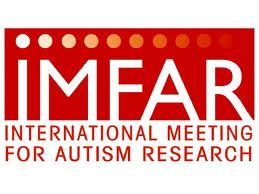Scientific and Clinical Advisory Council
SafeMinds Scientific & Clinical Advisory Council is comprised of clinicians, health professionals, and scientists from a variety of disciplines, including, among others, specialists and experts in autism, environment, toxicology, pediatrics, neuroscience, pharmacology, and psychology.
José G. Dórea, Ph.D.
Professor of Nutritional Sciences, University of Brasília
A graduate of the University of Pernambuco with advanced degrees from the University of Massachusetts (MSc and PhD), Dr. Dorea has worked at Iowa State University (USA), University of Hawaii (USA), and University of Campinas (Brazil). He has authored numerous book chapters, and has published on infant nutrition and the environmental impact of toxic (natural and man made) substances on the growth and development of children. Dr. Dorea is on the editorial board of peer-reviewed scientific journals, and has authored and co-authored more than 180 papers in journals of public health, medical and environmental sciences, toxicology, and pharmacology.
Cindy Schneider, MD
Medical Director, Center for Autism Research and Education
Dr. Schneider is the Medical Director of CARE, the Center for Autism Research and Education. Her integrative medical practice is exclusively dedicated to individuals with autism and related neurological and immune disorders. Dr. Schneider’s areas of special interest include treatment of the immune, gastrointestinal, and metabolic aspects of autism and the identification of environmental toxins contributing to the autism epidemic. She has designed and implemented multiple research studies, and collaborated with researchers worldwide. Dr. Schneider’s priorities in both her medical practice and her research include the identification of the causes of autism, the formulation of effective treatment protocols, and the prevention of autism in future generations.
Dr. Schneider has served as a member of the Defeat Autism Now! think tank since 1997, and serves on the Clinician Advisory Committee at the Autism Research Institute. She was the founding president and medical director of two nonprofit organizations for autism research, and is a medical advisor for SafeMinds. Dr. Schneider has published extensively in the areas of genetic vulnerability to environmental toxins, and innovative treatments for the gastrointestinal and immune complications of autism.
As the mother of two children with autism and a leading authority in the field, Dr. Schneider closely tracks developments in autism research, and provides both a medical and personal assessment of current and promising treatment options.
Robert Sears, M.D.
Robert W. Sears, MD, FAAP, is a board-certified pediatrician in a full-time private practice in Dana Point, Calif. He received his medical degree from Georgetown University, and did his pediatric residency training at Childrens Hospital Los Angeles. “Dr. Bob,” as he likes to be called by his little patients, provides a unique blend of mainstream and integrative medical care. He is a co-author in the Sears Parenting Library, including The Baby Book and The Portable Pediatrician, and is the author of The Vaccine Book, The Autism Book, and HappyBaby: The Organic Guide to Baby’s First 24 Months. Dr. Bob has appeared on Dr. Oz, The Doctors, CNN, CBS Early Show, Fox Morning News, and Dr. Phil discussg parenting advice and pediatric health issues. He is a frequent speaker at parenting conferences, and serves on the medical advisory board for various organizations, including Talk About Curing Autism, Autism Care and Treatment Today, HappyBaby Organic Baby Food, and Kaplan University Department of Health Sciences. Dr. Bob is a contributor to AskDrSears.com, and regularly answers questions on his Mothering.com Ask the Experts forum.

What’s Good for the Gut is Good for the Brain: A New Perspective on Autism
A global scientific conference on gut microbiota took place this week in Spain. Presenter Elaine Hsiao explained that autism is often marked by GI disturbance and in an animal model of autism, symptoms can be reversed with microbiome rebalancing. What’s good for the gut is good for the brain: A new perspective on autism Read more here.

IMFAR – Research Needs to Improve Lives of Those Living with Autism
The International Meeting for Autism Research, commonly known as IMFAR, just concluded its annual three-day conference on May 17, 2014. SafeMinds Board and Research Committee Member, Laurette Janak, reviewed the Autism Speaks roadmap of the conference to see what she missed out on. The roadmap can be found here. “Autism Speaks began the conference with […]

Autism’s Environmental Component: New Research Upends Scientific Orthodoxy Strangling Autism Progress
By Sallie Bernard, President, SafeMinds Bill Bernard Hiking (April 2014) New research has just come out which will hopefully drive a stake into a scientific theory that has strangled scientific progress in autism. The theory – that autism’s cause is almost entirely genetic – hasn’t matched the evidence for decades and has undermined promising avenues […]

NIH Grant Opportunity for Researchers – Due Date 8/26/14
NIH Environmental Contributors to Autism Spectrum Disorders R01 Research Project Grant due August 26 (Letter of Intent due 30 days before application). The purpose of this FOA is to stimulate and foster research to (1) identify environmental contributors to risk and expression of autism spectrum disorders (ASD) and (2) understand how environmental factors impact the […]

New Study Correlating Mercury and Air Pollution with an Increased Risk of Autism Spectrum Disorders
This new study published by the Harvard School of Public Health demonstrates further evidence of the association between environmental exposure to neurotoxic pollution and increased rates of autism. Not only did the study show mercury air pollution correlated with increased autism rates, it also demonstrated the pollution resulted in increased rates in boys. That this […]

Impact of the DSM-5 Criteria for ASD – Community Update – May 2013
Introduction This month, the American Psychiatric Association will publish the latest edition of its Diagnostic and Statistical Manual – the DSM-5. The manual contains significant changes to the diagnostic criteria for individuals with autism. The name of the category will be changed from Pervasive Developmental Disorder to Autism Spectrum Disorder. The four previous diagnoses: Autistic […]


